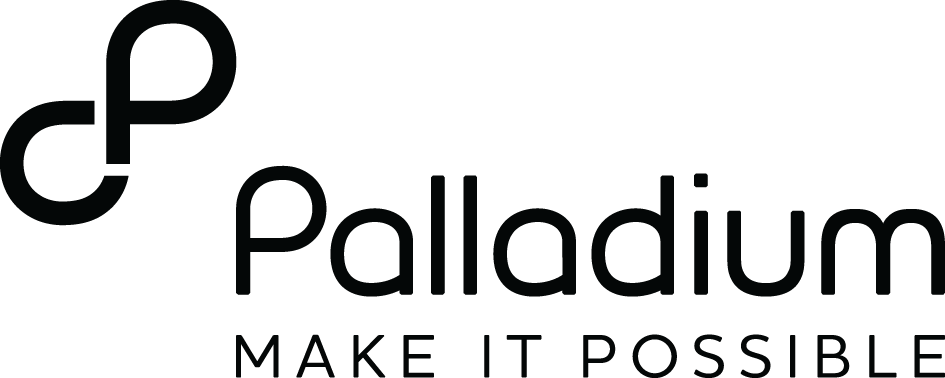Five Ways Donors can Mobilize Private Sector Investment for Development
It’s no longer in question whether private sector capital is needed to reduce global poverty – the funding gap for achieving the Sustainable Development Goals is well known. While the public sector and non-governmental organisations will always have a role to play in achieving the goals, the private sector has to engage with these challenges if we’re going to adequately finance development initiatives and target our resources to address the world’s needs.
How can aid donors mobilize private sector investment for development? Here are five ways.
1. Advocate for Impact Investing
Impact investments – investments that aim to have a positive social and environmental impact alongside a financial return – are an important tool for mobilizing financial resources for developing countries.
Donor governments can promote impact investing by publicly commending organisations that are investing for impact and giving those organisations a platform at government-organised or sponsored events, providing a reputational incentive.
In particular, donors should endorse the efforts of progressive institutional investors who are entering the impact investment space. Today, institutional investors have a low appetite for impact investing. This is partially because so few of them are engaging in it – investors are more likely to invest for impact if there’s momentum to do so across the wider community.
When institutional investors such as pension funds have more of a reputational incentive to enter this space, they may be more likely to make an allocation for impact and create products that align with the impact agenda.
2. Build the Impact Investing Infrastructure
Donors can help build the infrastructure for impact investing. The UK government’s Impact Program is a good example of this. The program is helping to create a market for impact investment in sub-Saharan Africa and South Asia. It has been addressing the constraints in the impact investing value chain to make impact investing more effective, efficient, and attractive to investors, intermediaries, and businesses. The program has been a significant contributor to building this infrastructure, from networks and intermediaries to innovative structures and thought leadership.
3. Demonstrate the Viability of Impact Investments
Large-scale investors are not willing to take unquantifiable risks. Many of the investments needed to achieve the Sustainable Development Goals are complex, and the risks as well as the success metrics are difficult to assess from an investor perspective. Donor programming has the potential to demonstrate the viability of impact investing through examples of investment initiatives that have a measurable impact and a financial return.
Additionally, institutional investors’ perceptions of risk are sometimes excessively high due to their lack of experience investing in developing economies or markets on which there is little information. Donors can play a role by sharing information and insights about markets in which they have a presence or experience investing.
4. De-Risk Impact Investments
Donors can help co-create and participate in financial instruments that de-risk impact investments, such as ‘development impact bonds’ that provide capital loss risk protection or ‘guarantees’ that partially protect private sector investors against capital losses.
An example of this this is the Utkrisht development impact bond. The bond will support government efforts to reduce maternal and newborn deaths by improving access to, and the quality of care in, private healthcare facilities in Rajasthan, India. USAID and MSD for Mothers have committed a total of up to USD $8 million in ‘outcome funding’ through the bond.
As outcome funders, they will ultimately pay for the results being achieved. UBS Optimus Foundation, in turn, is the private sector ‘upfront funder,’ providing up to USD $3.5 million initial working capital to cover service providers’ costs. All implementation partners are also co-investors. The risk is therefore shared between the donor and investors.
5. Structure Ecosystem Solutions with the Private Sector
Donors can also play a role in structuring ‘ecosystem solutions’ that are both beneficial to businesses and bring social or environmental benefits. Such solutions involve changing the behaviors of multiple players within a given ‘ecosystem,’ normally by helping to realign incentives, addressing market failures, and creating new partnerships.
An example of an ecosystem solution with the private sector is the USAID-funded Financing Ghanaian Agriculture Project (FinGAP), which helped create a market that linked small and medium-sized enterprises (SMEs) in the agriculture sector that needed financing with financing institutions. The project encouraged local business advisors to support SMEs that wanted to apply for capital. The advisors helped the SMEs with their funding applications and acted as intermediaries between the SMEs and financial institutions. Initially, the programme as well as the SMEs paid the advisors for this assistance.
Over time, however, the SMEs learned more about the process of applying for funding, while the financial institutions became more familiar with the sector and began hiring the business advisory service providers directly. The project ultimately facilitated USD $260 million of private capital into the maize, rice, and soy value chains. But, perhaps more importantly, it helped create a new market for business advisory services, which would continue to improve access to finance in Ghana’s agriculture sector after the project’s end.
A Deeper Involvement of the Private Sector
Major donors, such as USAID, the Australian Department for Foreign Affairs and Trade, and the UK Department for International Development, are already pursuing the above approaches. They should continue to do so. If successful, private sector investment for development will grow, will complement public initiatives, and will ultimately result in significant poverty reduction. But ideally, engaging in development will also change perceptions of the role of the private sector in society, shifting toward the realization that making a profit is compatible with ‘doing good’, and that ‘corporate social responsibility’ can mean much more than traditional CSR initiatives ever have.
About the Author
As Managing Partner for Europe, Middle East and Africa, Sinéad Magill leads Palladium’s donor funded business including delivery of the UK Governments Humanitarian and Stabilisation Operations program. Sinéad has over 15 years’ experience leading governance, security, and justice programs. She played a key role in the DFID programming in Iraq and subsequently delivered programmes in Afghanistan, Palestine, Uganda, and Syria, during which time she founded one of the UK’s leading stabilisation and recovery teams. A strong advocate for working parents and women, Sinéad was featured in Management Today’s 35 Under 35 and won the Women of the Future Business Award. She has a BA Hons from Trinity College Dublin and a Master’s in International Development from the London School of Economics.

